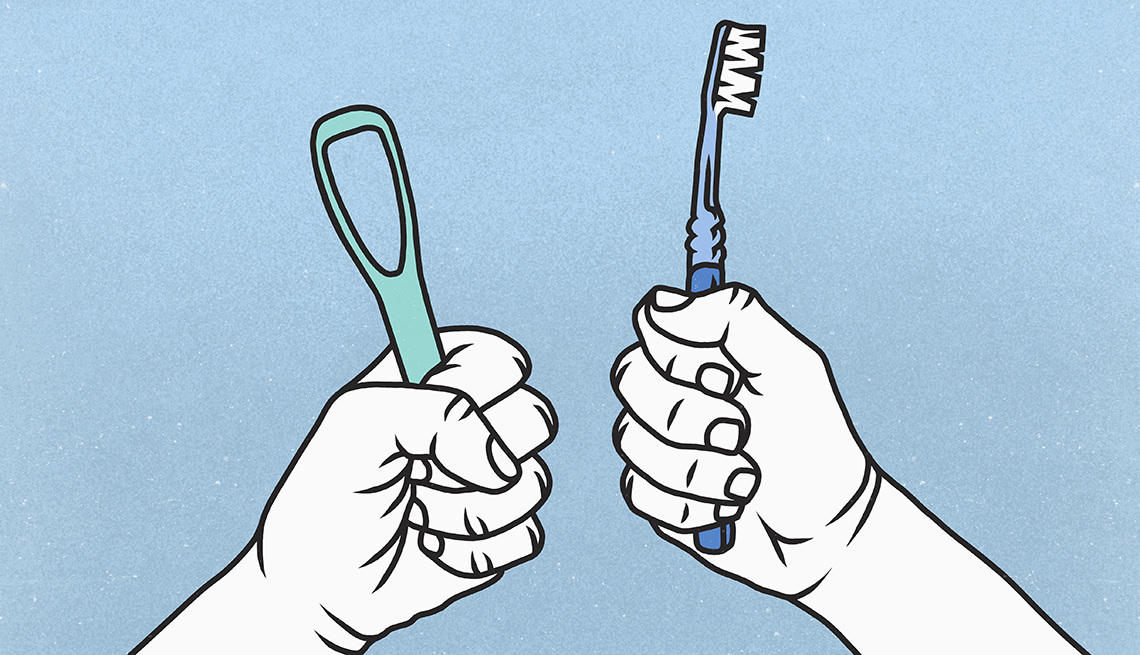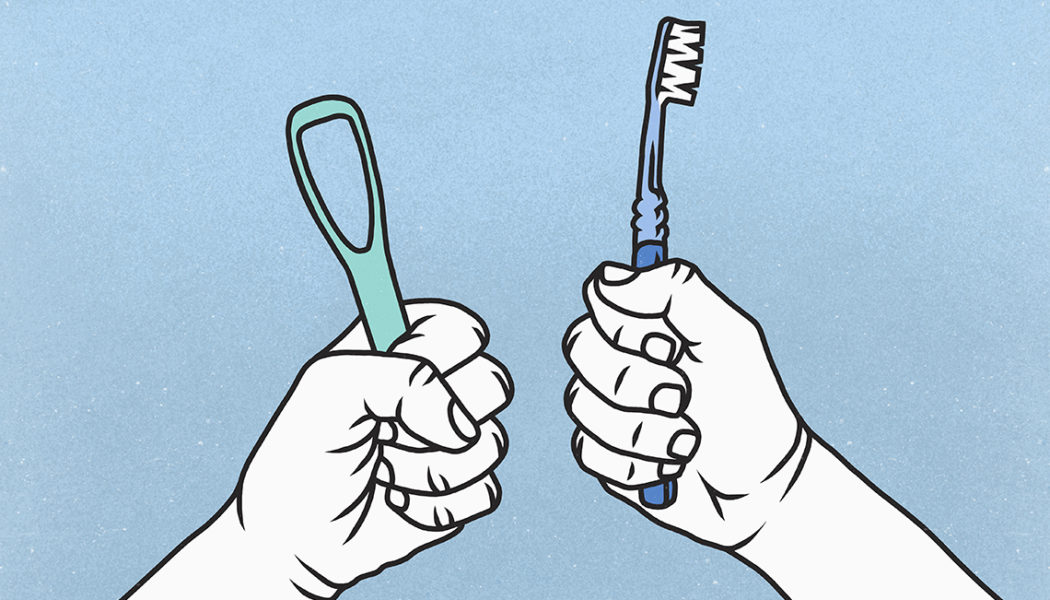
To help put the brakes on weight gain:
- Use up a least as many calories as you put in. The CDC recommends that older adults get at least 150 minutes a week of moderate-intensity activity (brisk walking will do the trick). You can also find workouts on AARP’s Staying Fit page that you can do at home.
- Watch for common pitfalls, like going out to eat and parties with buffets. Opt for healthier foods in these situations (load up on veggies and lean proteins) and be cognizant of your portion sizes.
6. Work on balance and strength
In addition to cardio, older adults need to spend time building strength and balance — both to help prevent bone loss and to reduce the risk of falls.
According to the CDC, falls are a major cause of injury for older adults. It’s estimated that among people 65 and older, more than one 1 out of 4 people experience a fall each year, and one 1 of 5 falls cause a serious injury such as a broken bone or head injury.
“As we age, the importance of performing strength and balance training increases,” says Jeffrey Schlicht, professor of health promotion and exercise sciences at Western Connecticut State University. “Strength training preserves muscle strength, while balance and coordination training are critical for reducing fall risk.”
No need to join a gym: Digging in the garden or working with resistance bands counts as strength training, the CDC says. And to improve your balance, try standing on one leg or attempting any one of these exercises.
7. If you’re still smoking, quit.
It is never too late to stop smoking. While years of smoking takes its toll, your circulatory system and lung function can still improve, even if you stop later in life. After you quit smoking, even after the age of 60, your heart rate and blood pressure drop to more normal levels, and your risk of having a heart attack or stroke will decrease, according to the National Institute on Aging.
Smoking is an addiction, and quitting isn’t easy. But there are resources to help. Talk to your doctor about your options or call 800-QUIT-NOW (800-784-8669). All states have “quit lines” with counselors who are trained to help smokers quit. Services are free, and some states can give you free nicotine replacement products (patches, gum and lozenges).
8. Stay on top of routine screenings
It’s important to stay on top of screenings for diseases that become more common with age, including cancer. According to the American Cancer Society, these screenings can help prevent thousands of additional cancer cases and deaths. Yet, a significant share of adults skip out on these screenings for various reasons, and the COVID pandemic has only made things worse.
Here are the screenings that are recommended by the American Cancer Society for people 50 and older:
- Breast cancer
- Cervical cancer
- Colorectal cancer
- Lung cancer (for people who currently smoke or formerly smoked)
- Prostate cancer
Talk to your doctor or a health care provider about when and how often these screenings are needed.









